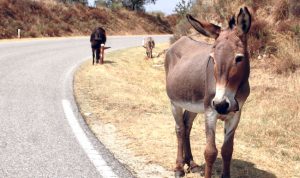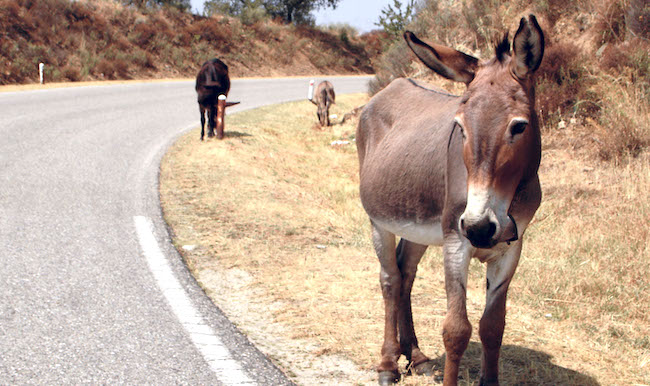
“And G-d said to Balaam ‘Do not go with them [the emissaries of Balak] and do not curse [the nation of Israel] for it is blessed.’ And Balaam arose in the morning and said to the officers of Balak, ‘Go to your land, for G-d refuses to let me go with you.'” (Bamidbar/Numbers 22:12-13) Rashi, the fundamental early medieval commentator, explains that “you” is the pivotal word: G-d will not let me go with you, but he might let me go with a delegation of higher rank (Balak got the hint and did, as the following verses indicate, send a mission of greater officers). But, concludes Rashi, we see that Balaam was haughty, for he did not disclose that G-d had expressly forbidden him from cursing the Jewish people.
Rabbi Chaim Shmulevitz (1) notes that Balaam’s statement was not deceptive. Indeed, G-d gave him two distinct commands: not to accompany an unbefitting delegation and not to curse the Jewish nation. How did Balaam know that G-d was concerned for his honor?
Ohr HaChaim (2) explains that G-d’s simple query as recorded by the Torah (“Who are these people?”) is actually the opening of a longer, more complicated question. The question was really “Who are these people that you let them into your private inner chamber?” Once Balaam appreciated that G-d was genuinely concerned for his honor, he understood the deeper meaning of the Divine statement “Do not go with them”: because it is beneath you. Ohr HaChaim further notes that this component of the command preceded the instruction not to curse them. Conveniently Balaam spared himself the discomfort of revealing the second reason, but it was only because he had the more compelling first one: G-d was concerned for his honor.
Similarly, the Talmud relates that G-d killed Balaam’s donkey to spare the owner embarrassment. Had the donkey lived, every time it went to the marketplace the masses would comment, “That is the donkey that chastised Balaam”. Rabbi Shmulevitz contemplates the incredible sanctification of the Divine Name that would have come from that phenomenon. Everywhere that donkey would travel people would be reminded of the Divine mandate of all mankind to follow G-d’s will, as well as the moment-by-moment Providence given to the welfare of the Jewish people. Nevertheless, the gain did not justify the ongoing shame and humiliation of Balaam.
Most noteworthy is the appreciation of for whom G-d did all this, Balaam. At his essence, Balaam was evil. True he may have possessed such a profound awareness and comprehension of G-d that he merited prophecy, but G-d granted prophecy to one so evil only to pre-empt the claim of the Nations of the World: Had G-d given us a prophet then we would have followed His will (G-d did and the nations still did not). After G-d told him that he could not curse the Jewish nation, he accepted the invitation of Balak’s second delegation to curse them. And while G-d did not allow him to curse them and forced Balaam to utter blessings, three times Balaam expended a genuine effort to fulfill Balak’s charge. Nevertheless, so great and valuable is the honor of our fellow human, concludes Rabbi Shmulevitz, that G-d went so far and “gave up” so much to preserve the honor of someone so evil.
And how will we react the next time someone pushes their shopping cart ahead of ours at the market? Or the next time our child neglects to put his dishes in the dishwasher after dinner?
Have a Good Shabbos!
(1) famed Dean of the Mir Yeshiva, who brought the Yeshiva intact to Shanghai in the early days of World War II, and after the War transplanted the institution in Jerusalem
(2) Biblical commentary of eighteenth century scholar and Kabbalist Rabbi Chaim ben Atar
Text Copyright © 2006 by Rabbi Pinchas Avruch and Torah.org.
Kol HaKollel is a publication of The Milwaukee Kollel Center for Jewish Studies · 5007 West Keefe Avenue · Milwaukee, Wisconsin · 414-447-7999


